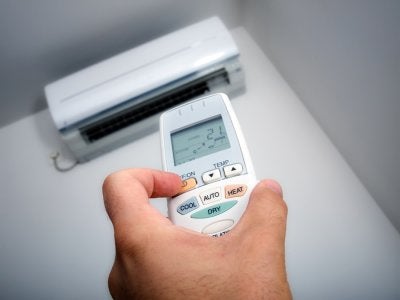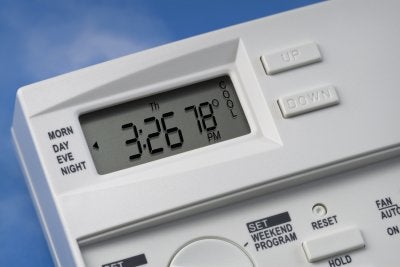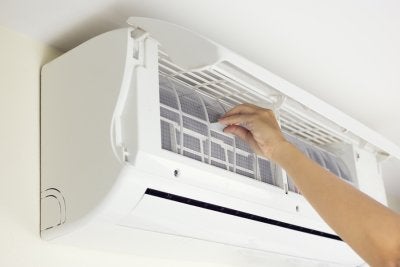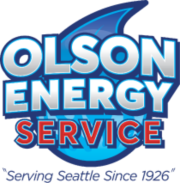-
Quick Tips for Improving the Performance of Your AC
When the weather starts to warm up, you’ll be grateful for having air conditioning in your Seattle home. If you aren’t careful to take the time to keep up maintenance on your air conditioner, however, you may find that it will not provide you with the level of service you deserve. Having your air conditioner routinely serviced by a maintenance professional will help to ensure that it stays efficient and effective. Here are some other steps you can take to keep your central AC system in excellent condition:

Install a ductless AC. If you simply want a certain area of your house to stay consistently cool throughout the day, you can avoid relying too much on your central AC by having a ductless mini-split system installed there. Ductless AC systems are extremely energy-efficient, and they operate unobtrusively since the compressor is located outside. Installing a ductless system may even qualify you for a federal tax credit.
Change your air filters regularly. Without a clean air filter, your air conditioner’s vents can become contaminated with dust, debris, pollen, and various pollutants. Along with harming the quality of your indoor air, this can make it harder for your air conditioner to cool efficiently as well. Check your air conditioner’s air filter regularly, and change it out for a new one when needed. During periods of heavy AC use, you’ll want to replace the filter at least once a month.
Buy a programmable thermostat. Running your air conditioner when nobody is home is wasteful, and it can also contribute to your high utility bills. If you purchase a programmable thermostat, you can schedule your AC to stop running while your house is unoccupied—or late at night, when everybody is asleep. Exercising more control over your temperature settings can help you conserve your air conditioner’s power for times when you really need it.
““
-
Air Conditioners & Allergies: What Homeowners Need to Know
If your seasonal allergies seem even worse than usual, your air conditioner might be the culprit. It’s not your air conditioning system itself that’s causing your allergies to worsen, of course—it’s the pollutants that are coming through the vents. If you don’t reach out to an air conditioning professional in the Seattle area so you can get routine cleaning and maintenance for your HVAC system, you could be in for a long allergy season. To learn more about the connection between common allergies and your air conditioner, keep reading.

Allergens can be spread by air vents. Your HVAC vents circulate climate-controlled air throughout your home. Unfortunately, they can also circulate pollen, dust mites, mold spores, bacteria, viruses, and numerous other pollutants that can make you and your family sick. If you find yourself suffering from allergy symptoms on a consistent basis when you are at home, you should consider having your air vents inspected by a professional.
Indoor air can be more contaminated than outside air. According to the Environmental Protection Agency , we spend about 90 percent of our time inside. That means that the quality of indoor air makes a significant difference in how healthy we are. If contaminated air is circulating through your HVAC vents, you’ll spend a lot of time breathing it in—which can have a detrimental effect on your health. Cleaning your vents can help you ensure that the air you’re breathing is clean and safe.
Air filters can improve your air quality. Air filters serve to keep the contaminants that get into your vents out of your indoor air, so it’s important to check them from time to time and replace them when necessary. There are also many other devices that can help to reduce the number of pollutants in your air, including air purifiers and germicidal UV lamps. If you’re interested in learning how you can improve your indoor air quality, talk to an HVAC professional today.
-
Is a Fireplace Insert Right for You?
Many homeowners love the thought of warming themselves before a cozy fireplace on a cold winter’s evening. Unfortunately, fireplaces are extremely wasteful of energy. When you use your furnace to warm up the rooms in your house that don’t have a fireplace, you may discover that much of that warm air goes right up the chimney. In addition, the pollutant-heavy wood smoke emitted by older fireplaces isn’t good for the environment.
If you want to enjoy the benefits of a fireplace without the drawbacks, you might consider a fireplace insert . Watch this video from The New York Times to hear the story of one couple who decided to opt for a fireplace insert for their house. If you’re trying to decide whether to have a fireplace insert installed in your Seattle home, the video may help you make your decision.
-
Common Causes of AC Compressor Failure
There are numerous reasons why you might need emergency service for your home’s air conditioning system, but one of the most common issues arises when your AC compressor fails. Replacing your compressor too frequently can be costly, but you can reduce your need to do this by investing in routine preventative maintenance for your AC system. Before you call an air conditioning contractor out to your Seattle home, take a look at this list of the most frequent causes of a failed AC compressor.

Refrigerant leaks. When refrigerant leaks through a gap or crack in the lines, the level of refrigerant in your air conditioning system naturally begins to decline. This means that a great deal of strain will be put on your compressor—which can eventually lead to a breakdown. If your refrigerant lines become blocked, the same problem can result. Periodic inspections of your refrigerant lines can help to prevent this from becoming an issue.
A dirty system. Everything in your house needs to be cleaned from time to time, and your air conditioning system is no exception to the rule. Over time, the inside of your air conditioning system can become clogged with dust and dirt, which can reduce the effectiveness of your air conditioner and can also put unwanted pressure on your compressor. A routine professional checkup of your entire AC system will ensure that it stays clean, efficient, and effective.
Grime on the coils. If dust and grime are allowed to accumulate on your AC condenser coil, it will force your air conditioning system to work harder in order to provide your home with cool air. This increase in pressure can overwork your compressor and make a breakdown much more likely. The best way to ensure that this doesn’t happen is to schedule routine checkups and cleanings from an experienced air conditioning professional in your area.
““
RECENT POSTS
categories
- Uncategorized
- Air Conditioner
- Fireplace Inserts
- Fireplace Insert Installation
- Air Conditioning Installations
- Air Conditioning Units
- Air Conditioner Maintenance
- HVAC Professionals
- Heat Pump Installation
- Heating and Cooling
- HVAC Unit
- Heat Pumps
- Furnace
- Furnace Service
- Tankless Water Heaters
- Water Heaters
- Energy Efficiency
- HVAC Contractors
- Olson Energy Service
- Mini-Split Systems
- Ductless Air Conditioner
